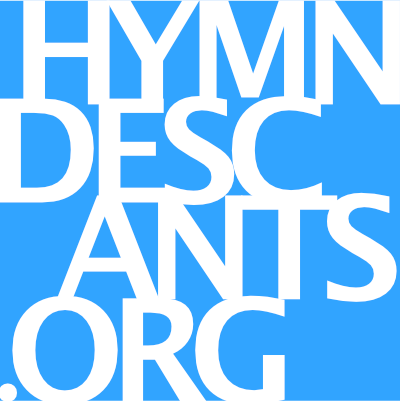Descant to the hymn tune ST. FULBERT. Free score with harmonized descant. Audio: Short intro - Hymnal verse (Gauntlett, 2x) - (organ ad lib) - Descant verse. Key: Db Free score.
1 hymnal (harm. Gauntlett)
I love thee, Lord, but not because
I hope for heaven thereby,
nor yet for fear that loving not
I might for ever die;
2. hymnal satb
not with the hope of gaining aught,
not seeking a reward;
but as thyself hast loved me,
O ever loving Lord!
3 descant
E'en so I love thee, and will love,
and in thy praise will sing,
solely because thou art my God
and my eternal King.
This tune of Henry Gauntlett, a prolific composer of hymn tunes, originally appeared in 1858 under the name St. Leofred, with a paraphrase of the Pascha nostrum; it then emerged in Hymns Ancient and Modern nine years later with the text "Ye choirs of new Jerusalem," translated from an 11th C. text by Fulbert of Chartres, and bearing a new name, ST. FULBERT. This pairing is traditional fare for Eastertide in Great Britain, a continuation of its historic use is an office hymn for vespers beginning on Low Sunday (the second Sunday of Easter). It is also commonly wrapped around an English translation of a Latin hymn, becoming My God I love thee not because. The 1694 Latin is itself a translation from a sonnet written in Spanish, attributed to St. Francis Xavier.
This descant was written for the Choir of St. Peter's Peterston for services featuring the new (Easter 2010) Nicholson organ at Llandaff Cathedral in Cardiff, Wales (images below).
Updated: April 2023
EASTER VERSION (UK)
Click for audio clip: Ye choirs of new Jerusalem, with Alleluia, Amen. In Eb, a full step higher.
Images of the Nichlson organ at Landaff Cathedral
References
- O Deus ego amo te (O God I love thee), Wikipedia
- My God I love thee, Tyler Ferguson, UMC Discipleship Ministries
- Ye choirs of new Jerusalem, Wikipedia enty
- Henry Gauntlett, The Hymnary website
US – Combined: My God I love thee not because / Lo! what a cloud of witnesses (in Db)
Descant verse:
E'en so I love thee, and will love,
and in thy praise will sing,
solely because thou art my God
and my eternal King.
– Latin 17th C., tr. Edward Caswall (Lyra Catholica, 1849),
UK – Ye choirs of new Jerusalem with Alleluia, Amen (A4 format, in Eb)

